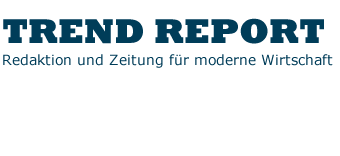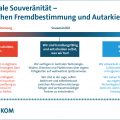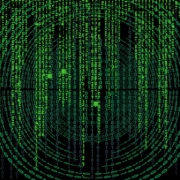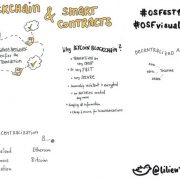Digitale Souveränität umsetzen
In unserer aktuellen Ausgabe sprachen wir mit Élena Poincet, Gründerin und COO von Tehtris. Das Unternehmen hat ein XDR-Ökosystem erschaffen, dass es Unternehmen ermöglicht, digitale Souveränität umzusetzen. Lesen Sie nun das Interview im englischen Wortlaut.
Éléna, how can we improve our European cyber sovereignty?
European economic patriotism is key to guarantee our cyber autonomy. Europe has existing and effective human skills and cyber defense solutions. It is the responsibility of States and companies to use these offers. It is now that we must build a European leader in cybersecurity to combat the cybercrime that is already present. To assert our autonomy, trusting innovative SMEs is crucial. In 10 years, it will be too late.

In this context, what are the advantages of your XDR platform?
In 2022, all organizations must be able to defend themselves. Acquiring a hyper-automated and interoperable cyber defense solution becomes the top priority to neutralize lightning attacks. There is no time for humans to react. The TEHTRIS XDR Platform fulfills this role. It aggregates, analyzes and neutralizes cyber attacks in real time automatically and without human intervention. „It is designed without backdoors and guarantees the inviolability of protected files. With the TEHTRIS XDR Platform, IT teams are ready to face the unexpected.
Éléna, You emphasize „neutralizing cyber attacks without human intervention.“ What does this mean for enterprises?
Today humans no longer have the time to respond manually to the most advanced unknown attacks, given the speed at which the cyberthreat spreads. Only XDR technology meets this need. Organizations want solutions that are flexible and easy to operate, that conserve security staff time, centralize information, and optimize cybersecurity without burdening systems. Adopting technology designed to simplify, centralize and orchestrate, such as the TEHTRIS XDR Platform, allows analysts to focus on higher value tasks. This means time savings and efficiency for everyone.
What role do emerging technologies around AI and machine learning play in your solution?
Artificial Intelligence is central. Since its conception in 2012, the TEHTRIS XDR Platform has been designed in a hyper-automated way with machine learning and deep learning thanks to its Artificial Intelligence CYBERIA. Information from the various cybersecurity modules of the infrastructure is analyzed. Cyber threats are then detected and neutralized in real time and without any human intervention. This provides a 360° visibility to the enterprise cybersecurity team.
Where is your solution already in use and can SME’s also afford the cost?
Our solution is deployed in 120 countries, in all sectors of activity, from multinationals to small businesses. Every organization, regardless of its size, must be able to benefit from effective cyber protection at an affordable cost. That’s why TEHTRIS has launched an online solution for small and medium-sized businesses, which are more vulnerable to cyber attacks. Available on our TEHTRIS store, our solution is turnkey and installed in less than five minutes for an optimal protection.
Cloud or on-premise – what options and API’s do you offer?
Cloud and on-premises, TEHTRIS offers these options. We adapt to the preferences of our customers. The integration of external applications or solutions is also unlimited. The TEHTRIS XDR Platform is open and developed around very powerful and efficient APIs. The APIs allow for a plethora of existing related solutions to be integrated, without any specific integration effort, and in a completely flexible way.
What contribution to a German cyber ecosystem can you make?
Our ambition is to contribute to the German cyber ecosystem by working with local players. Our technology is 10 years old and we are convinced that it meets the needs of German companies and administrations. Our involvement in associations such as Teletrust, and the SecurITy made in EU label, which we recently obtained, are the first steps of our insertion in the German ecosystem.
When will you be able to reach your customers in your new office in Frankfurt?
TEHTRIS is operational in Germany. Our team will grow rapidly under the leadership of Olaf Müller-Haberland, our country manager. Our contribution to the cyber-ecosystem will obviously include the creation of jobs in Germany. We want to have teams as close as possible to our customers. We are recruiting for positions as integrators, cybersecurity engineers, technical account managers, sales and pre-sales architects, and marketing managers. Join the TEHTRIS adventure!
Éléna, why does the „Digital Transformation“ not stand a chance without cyber security and trust in our solutions?
The 2010 decade was marked by the ecological transition, the 2020 decade should also be the decade of digital transformation. Many European regulations have been moving in this direction in recent months (DSA, DMA, NIS2…). Our digital autonomy will be achieved on the condition that we use well-designed European cybersecurity solutions, secure and ethical by design. Europe has been „bottle-fed“ with American and Israeli software. In this context, trust in European solutions is difficult to obtain, even if a change is taking place in recent months. If it is impossible today to have a total technological control, on a European scale, using 100% European cybersecurity solutions is possible. It is crucial to control the protection of our data and our assets. This is why TEHTRIS fights against cyber espionage and cyber sabotage and positions itself as a European trusted third party.
How do you intend to motivate German companies in particular to invest more money in cyber security and product safety?
It is crucial to anticipate the attack rather than assume the consequences. Last year, almost 92% of German companies were attacked. Today, anti-virus software is no longer sufficient to protect against the most devastating unknown attacks. It is becoming essential to be able to detect and neutralize attacks in real time and without any human intervention. The eXtended Detection and Response technology enables CISOs to meet the challenges of immediacy. This is what TEHTRIS has been offering to its customers since 2012, with the TEHTRIS XDR Platform. Thanks to machine learning and deep learning, subtle aspects of threats that would be invisible to the naked eye are detected. The experience gained in these areas is the main asset of TEHTRIS, the only vendor in the European Union to be recognized as a representative vendor by Gartner® in the Market Guide for Extended Detection and Response 2021.
To what extent has war through the Internet already arrived in Europe?
Cybercrime is present and involves collateral damage. Since the beginning of the Russian-Ukrainian conflict, we note that the number of daily attacks remains significant but has not skyrocketed. We can refer to the KA-SAT satellite system operated by Viasat Inc., a cyber attack led by Russia against Ukraine and condemned by the European Union. Several organizations in Ukraine have been hit by attacks based on new malware called „data eraser“ or „wiper“ such as WhisperGate and HermeticWiper. In Russia, we are also seeing threats and espionage operations. This cybercrime is highly organized around gangs that are real companies with HR, R&D, financial services, reconnaissance… At TEHTRIS, we think in wartime and we are in a cyber defense arms race. Automatic neutralization in real time and without human action is the only system today to deal with these lightning cyberattacks.
A huge hacker community has been formed in Russia for years, and many private individuals also make a living from it.
What threat scenarios do we have to prepare for?
Russian and Ukrainian attackers are already well equipped with cyber weapons. In Russia, groups such as APT28 and Sandworm are regularly mentioned. Ukraine, on the other hand, is known to host some of the most effective criminal groups. In this context, we must remain very vigilant. A cyber attack is prepared and its consequences can only be felt in the long term. We must expect a diversification of attacks (ransomware, DDOS) and targets. Private companies, government infrastructures (health service, water, civil goods), or critical infrastructures will be targeted. No sector can actually be spared. Alert levels have been raised by information systems security agencies in Europe and particularly in Germany. NATO member countries are expecting disruptive activities, ransomware, or other attacks against critical infrastructure.
„We are very excited about the future of quantum computing technologies, which will most certainly bring significant advances in computing power, operating costs, and speed.“ …… Can the timely and rapid development of quantum computing better protect us?
Quantum computing is based on quantum systems that perform a multitude of mathematical calculations quickly and simultaneously. A quantum race has been emerging for several years now, as States (USA, China, Russia, EU, UK) have been investing in this technology for more than 40 years for some.
These technologies, which have a capacity for rapid resolution and processing, can protect us insofar as cybersecurity is based on protection, detection and remediation measures that require a very high speed of execution. On the other hand, quantum computers rely on algorithms that are only „probabilistic“ and they are sensitive to environmental variations (temperature variations, magnetic fields).
Although no quantum computer is yet powerful enough to make current protection mechanisms truly obsolete, it is advisable to be as prepared as possible. TEHTRIS has been the pioneer of the XDR technology and this innovation driven philosophy makes us able to face the unpredictable today and tomorrow.












